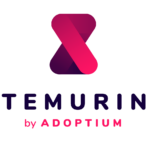The Eclipse Indigo release train arrived today with a renewed focus on the Java Development Tools platform. And at the top of the list of changes for Java developers is the inclusion of WindowBuilder Pro, formerly a commercial GUI builder from Instantiations and now a top-level project at the Eclipse Foundation, thanks to Google’s acquisition of that company and subsequent donation of the code.
“The No. 1 thing we’re stressing is the Java developer angle,” said Mike Milinkovich, director of the Eclipse Foundation. “Folks that have been using Eclipse for a long time already know WindowBuilder. Thanks to Google’s contributions, WindowBuilder Pro is in open source. It is a professional quality GUI builder.”
Todd Williams, cofounder and vice president of technology at Genuitec, said that his company has already been distributing WindowBuilder to its users of Pulse and MyEclipse. He said that WindowBuilder has been “getting a lot of interest. A high-quality GUI design tool for Swing and SWT is something Eclipse developers haven’t been able to get for free before.”
Java developers have long complained about two major areas of functionality in Eclipse, said Milinkovich: the lack of integration with the Git version control system, and the Maven build manager. With Indigo, he said, both of these areas of pain have been addressed.
“As our survey showed, the number of developers using Git is growing extremely fast. Having solid Eclipse support in the EGit workbench is very important,” said Milinkovich, highlighting the addition of better Git support in Eclipse 3.7.
“Developers have, quite rightly, been complaining for a long time that Maven support is not where it should be. Thanks to Sonatype, this new version will help developers use Maven as their build infrastructure.”
Modeling is another area of focus for the Indigo release train, said Milinkovich. “Modeling has been a big part of the Eclipse community for quite a few years. Xtext and the advances in textual modeling have impressed me. I have to be honest, I’ve never been a bubbles-and-lines guy, so the classic approaches to modeling never really excited me too much,” he said.
#!
“But the idea of textual modeling and being able to create both [domain-specific languages] and tools for those languages with a tool like Xtext is a big advance in modeling. We’re seeing that technology show up in a lot of places.”
In addition to the version 2.0 of Xtext, Indigo features an update to the CDO Model Repository. “The CDO model repository will manage large models for you,” said Milinkovich. “Adding these NoSQL back ends dramatically improves the scalability for that.
“Adoption of modeling in Eclipse has been growing steadily, with a lot of interest in Eclipse-based tooling for model-based development, particularly in the various areas of systems engineering in the aerospace and automotive industries. The ability to have a well-defined, traceable life cycle is very important, and that’s why a scalable repository CDO provides is so important for the overall success of modeling.”
Eclipse has also become a popular runtime for developers. The Eclipse Runtime project, EclipseRT, acquired a number of new features for the Indigo release. “The new OSGi specifications are important,” said Milinkovich. “We’ve got a robust implementation of OSGi 4.3 in Equinox. The OSGi modularity model is front and center in the overall story around Java modularity. We’re very happy to be hosting the reference implementation of OSGi at Eclipse.”
That doesn’t mean that only the big projects get all of the attention, Milinkovich said. “We’ve got some fairly small projects. The Agent Modeling Platform is a two-person project that put in all the effort to become part of the Eclipse release train process,” he said.
“They showed that it’s possible and that people who are motivated do it because it generates adoption for their project. I know it was a lot of work for the two guys, so it’s great to see these small projects joining in on the release train as well.”
#!
What’s in Indigo?
The Indigo release train included updates across the board. Here’s the list of what was updated along with the new version numbers for each project.
Acceleo 3.1.0
Accessibility Tools Framework 0.9.0
Agent Modeling Platform [new] 0.9.0
Amalgamation 1.2.0
ATL 3.2.0
Business Intelligence and Reporting Tools (BIRT) 3.7.0
C/C++ Development Tooling (CDT) 8.0.0
CDO Model Repository 4.0.0
Data Tools Platform 1.9.0
Dynamic Languages Toolkit 3.0.0
Eclipse Communication Framework 3.5.1
Eclipse Generation Factories (EGF) [new] 0.5.0
Eclipse Git Team Provider 1.0.0
Eclipse Gyrex Project [new] 0.10.0
Eclipse Packaging Project 1.4.0
Eclipse Project 4.1.0, 3.7.0
Eclipse Runtime Packaging Project [new] 0.1.0
Eclipse Scout [new] 3.7.0
Eclipse Web Tools Platform Project 3.3.0
EclipseLink Project 2.3.0
Ecore Tools 1.0.0
EMF 2.7.0
EMF Compare 1.2.0
EMF Facet [new] 0.1.0
EMF Query 1.5.0
EMF Transaction 1.5.0
EMF Validation 1.5.0
Equinox 3.7.0
Extended Editing Framework (EEF) 1.0.0
Graphical Editing Framework (GEF) 3.7.0
Graphical Modeling Framework (GMF) Notation 1.5.0
Graphical Modeling Framework (GMF) Runtime 1.5.0
Graphiti [new] 0.8.0
Java implementation of Git 1.0.0
Java Workflow Tooling 1.1.0
Jetty – Servlet Engine and Http Server
Jubula Functional Testing Tool [new] 1.0.0
Linux Tools 0.8.0
Marketplace Client 1.1.0
Maven Integration [new] 1.0.0
MDT UML2 3.2.0
MDT XSD (XML Schema Definition) 2.7.0
Memory Analyzer 1.1.0
Mobile Tools for Java 1.2.0
Modeling Workflow Engine 2.0.0
MoDisco 0.9.0
Mylyn 3.6.0
Object Teams [new] 2.0.0
OCL (Object Constraint Language) 3.1.0
Papyrus 0.8.0
Parallel Tools Platform (PTP) 5.0.0
PHP Development Tools 3.0.0
QVT Operational 3.1.0
Rich Ajax Platform 1.4.0
Riena Project 3.0.0
SCA Tools 2.2.0
Sequoyah 2.0.0
Subversive – SVN Team Provider 0.7.9
Target Management 3.3.0
WindowBuilder [new] 1.0.0
Xpand 1.1.0
Xtext 2.0.0






